This post originally ran on April 30, 2008. It was written on my first trip to the Dominican Republic to make three short films about Compassion’s work in this country.
—————————————-
With our stomachs full of breakfast, we climbed aboard the bus and headed out for the sugar plantation. Chris, our guide from Compassion‘s Dominican Republic office, prepared us for what we were about to see.
The sugar plantation is run by a large U.S. corporation, he explained – himself having grown up in Brooklyn and still maintaining dual citizenship. The workers are paid $2 a day when they’re harvesting, he said, which isn’t all year. They once worked all year, before all but one mill was moved to China. Now the Haitian migrant workers employed by the sugar company only harvest.
Just a few miles from the plantation, the sugar company owns a large 2,000 home barbed-wire lined luxurious neighborhood. From these million dollar homes, and nearby resorts and hotels, trash is trucked to the dump several times a day.
That’s where we were headed, Chris explained.
As I stepped out of the bus and onto mud, the first thing that struck me about the dump was the sound. Buzzing. A billion flies all humming together.
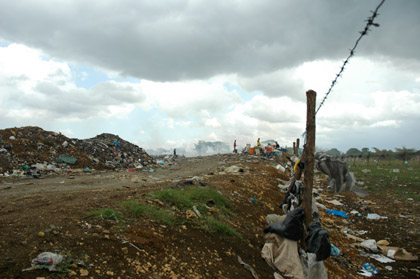
Then there was the smoke. A dozen small fires smoldered across the acres of leftovers.
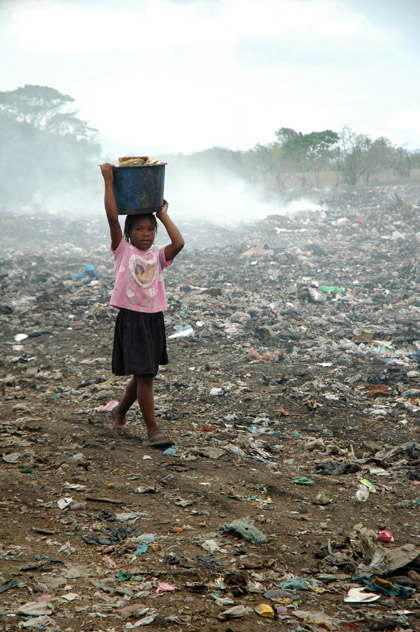
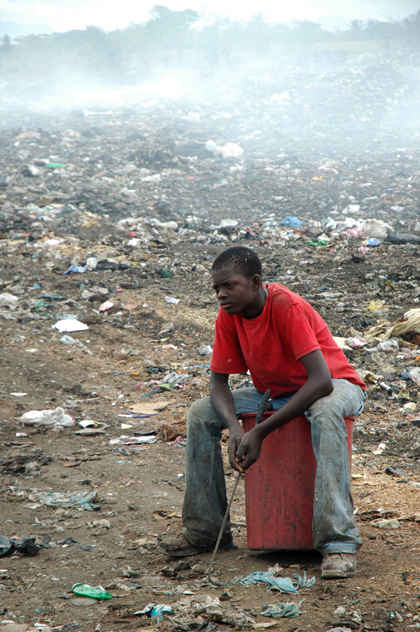
And a little girl, about seven years old, carried buckets of debris for mom and poked garbage with a stick, looking for something for her family to eat or wear or sell.
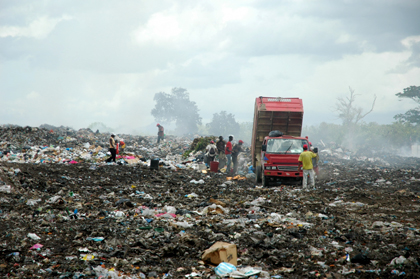
A trash truck backed into the dump as Tim Neeves (film maker) and I climbed the nearest mound of trash and began collecting our thoughts and figuring out how to explain what we were experiencing to a camera. About a dozen Haitians swarmed around the fresh load of bottles, cans, half-eaten dinners and other scraps from the good life down the street.
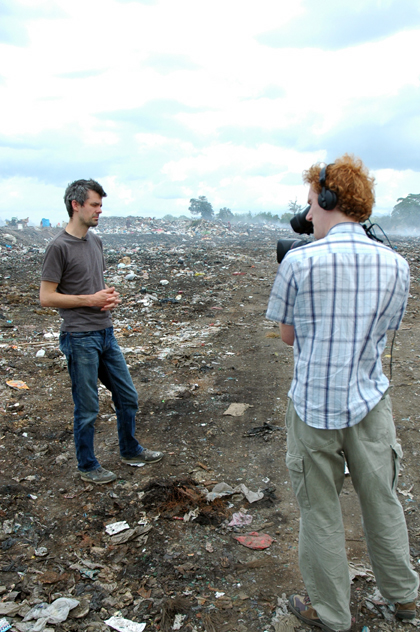
We began filming while Noelia struck up a conversation with the little girl with the stick.
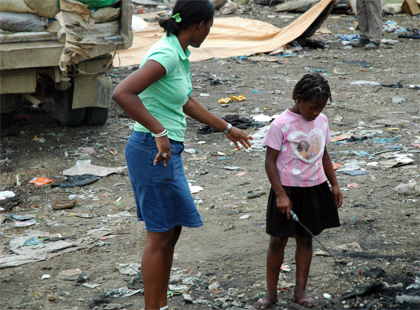
Noelia has a face made for magazine covers but a history that keeps her here at the dump. She’s in her mid twenties, the daughter of a plantation supervisor. She was born into poverty – raised on the plantation. And cared for by Compassion International, and her sponsor. As a young woman she left this place to study. Then Noelia returned to to the plantation, the smoke and flies and the trash. Today, she’s the director of the Compassion project that served her when she was a little girl with a stick.

—————————————-
Go here to sponsor a chid.
 Shaun Groves
Shaun Groves
Texas in Africa says:
The slave traded ended in large part because British women decided they could do without sugar from those plantations in their tea for awhile. It ENDED.
I think you have real justice only when individuals are helped one by one AND the structural causes of injustice are eliminated.
And wouldn’t you know my captcha is justice82?
Juli Jarvis says:
What a great story! Thanks so much for sharing–